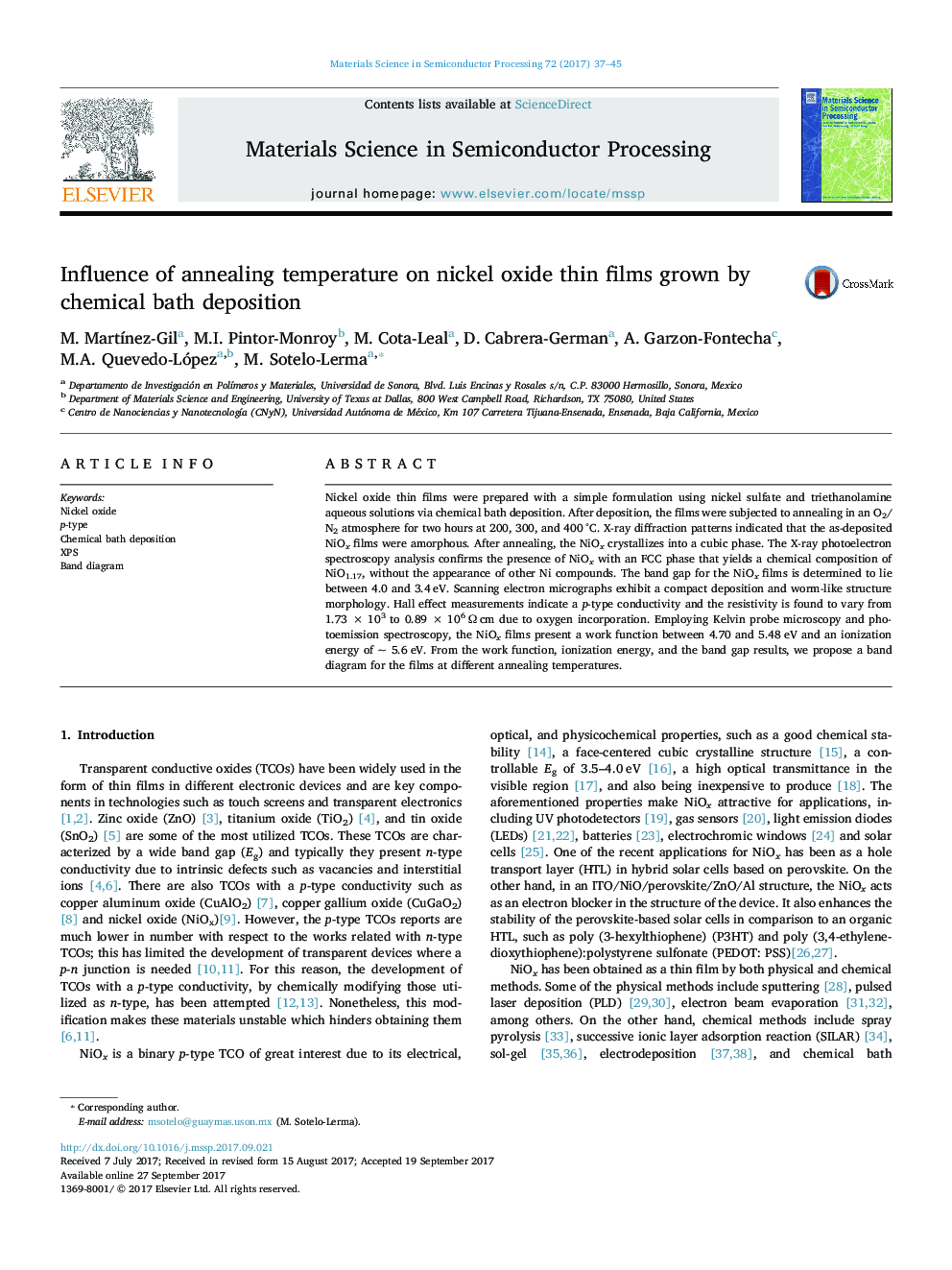| Article ID | Journal | Published Year | Pages | File Type |
|---|---|---|---|---|
| 5005777 | Materials Science in Semiconductor Processing | 2017 | 9 Pages |
Abstract
Nickel oxide thin films were prepared with a simple formulation using nickel sulfate and triethanolamine aqueous solutions via chemical bath deposition. After deposition, the films were subjected to annealing in an O2/N2 atmosphere for two hours at 200, 300, and 400 °C. X-ray diffraction patterns indicated that the as-deposited NiOx films were amorphous. After annealing, the NiOx crystallizes into a cubic phase. The X-ray photoelectron spectroscopy analysis confirms the presence of NiOx with an FCC phase that yields a chemical composition of NiO1.17, without the appearance of other Ni compounds. The band gap for the NiOx films is determined to lie between 4.0 and 3.4 eV. Scanning electron micrographs exhibit a compact deposition and worm-like structure morphology. Hall effect measurements indicate a p-type conductivity and the resistivity is found to vary from 1.73 à 103 to 0.89 à 106 Ω cm due to oxygen incorporation. Employing Kelvin probe microscopy and photoemission spectroscopy, the NiOx films present a work function between 4.70 and 5.48 eV and an ionization energy of ~ 5.6 eV. From the work function, ionization energy, and the band gap results, we propose a band diagram for the films at different annealing temperatures.
Related Topics
Physical Sciences and Engineering
Engineering
Electrical and Electronic Engineering
Authors
M. MartÃnez-Gil, M.I. Pintor-Monroy, M. Cota-Leal, D. Cabrera-German, A. Garzon-Fontecha, M.A. Quevedo-López, M. Sotelo-Lerma,
